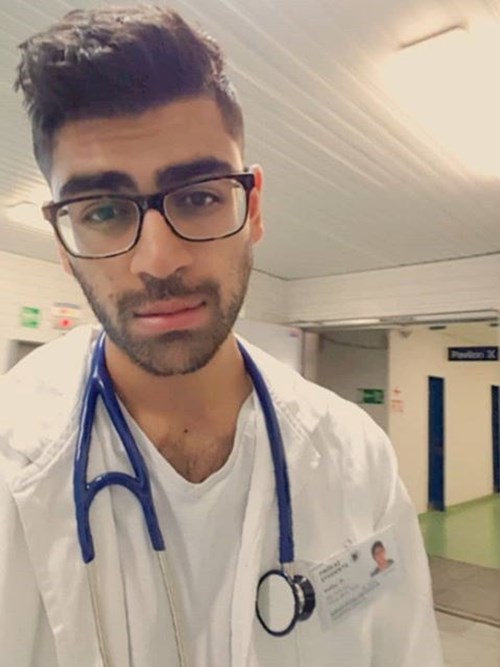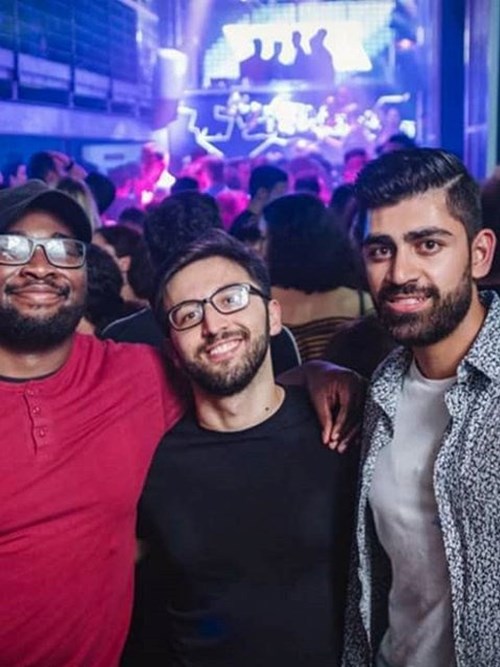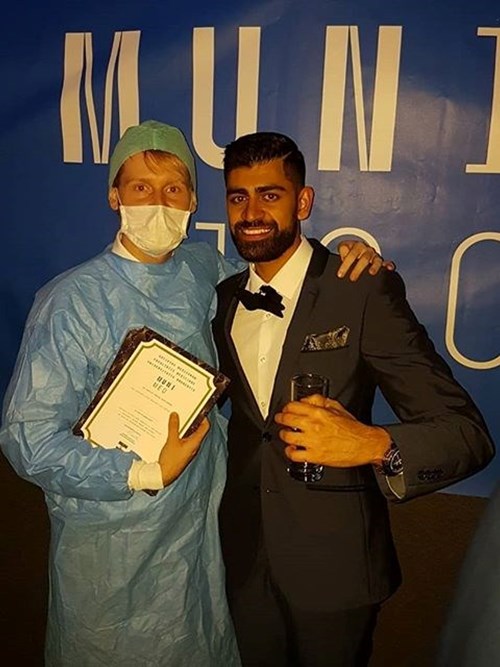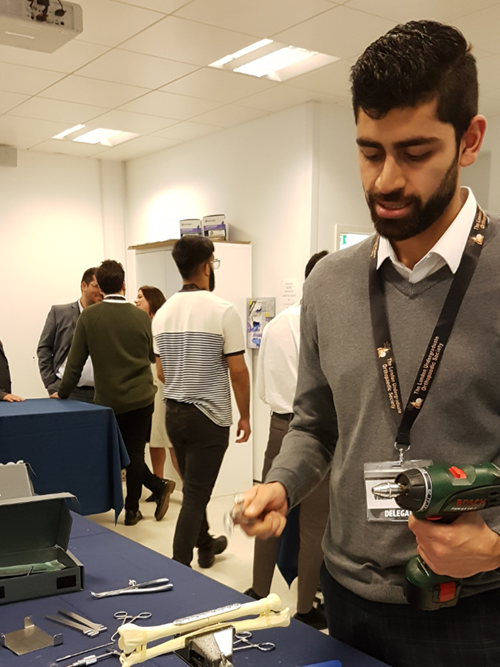Can you tell us something about yourself? Where did you come from? How long have you been studying in Brno?
I was born and raised in London, but I’ve been living here in Brno for the last 5 years to study medicine. I’m 23 years old and aside from my studies, I like to balance my time between my hobbies, tutoring and work as President of MIMSA.
Deelan, you're the President of MIMSA. Can you introduce this association a little and tell us how many members it has and what do you do?
MIMSA (Masaryk International Medical Students Association) was founded in 2007 and is a non-profit organisation run for students by students. International students who study on the General Medicine, Dentistry and Physiotherapy programmes are all introduced to MIMSA during their enrolment. Our main purpose is to create a bridge between the students and Masaryk University, as well as similar student organisations in the city. We cater for the academic, social and welfare needs of all international medical students via educational lectures, clinical events, club nights, sports tournaments and charity fundraisers. Our current board has 17 members and we cater for approximately 650 students from the aforementioned degree programmes.
Why did you decide to study at the Faculty of Medicine of Masaryk University? Did you know anything about the university or the Czech Republic before you arrived?
I opted for Masaryk University because I had heard of its good reputation from alumni. I knew very little about Brno or Czechia before my arrival, so it was incredibly daunting at first to settle in. The Orientation Week arranged by MIMSA was really beneficial not only in introducing us to University life but also acquainting us with our classmates through various social events.
How do you perceive the current situation? You're far from your family, your friends. Do you have a trick to handle this situation? Does it help you to study? Are you discussing the situation with your classmates?
It’s both worrying to see the devastating effects of COVID-19 on the at-risk populations across the world but also eye-opening to look at the beneficial global impacts such as improved air quality and decreased CO2 emissions. On a more personal level, I’ll admit that its been difficult to adapt to non-contact teaching and self-isolation. After the initial 2 weeks, I began to improve my productivity by making a routine that included studying, exercising and time to relax. I believe having the discipline to keep up with studies whilst also making time to video call friends and family is what ultimately contributes to a positive mental health. As the president of MIMSA, I’m in close contact with the Dean of Masaryk University and other senior members of our faculty administration. It’s comforting to know that they are working hard to ensure a smooth transition for all medical students.
What is the situation in your country? Are you in touch with your family?
Sadly, the death toll is extremely high in the UK and is due to a delayed response in enforcing social distancing and quarantine measures by the government. Thankfully, my family are all safe and healthy, but I have friends who have not been so fortunate, so my prayers are with them during this time.
The pandemic shows the importance of healthcare. So far, the Czech approach has proved to be a good way. Do you think this approach is applicable to other countries?
Safety measures in Czechia are to be commended. Enforcing the national quarantine early on seemed unnecessary to many initially but has likely saved countless lives. The volunteering effort led by SKAS has been instrumental in placing medical students on the front lines at FNB and other hospitals in and around Brno.
And finally, a personal question. How do you like it in the Czech Republic? Is there something that surprised you in good or something you still don't understand?
Brno is a certainly a student-centric city with plenty to offer socially, which is fantastic for incoming students and tourists. What surprised me most upon arrival was the coldness shown to foreigners and the lack of integration into society. Whilst I feel that there is room for improvement, everything works both ways, so making that extra effort on the part of foreigners definitely helps (mainly through practicing Czech around the city). One of my personal motivations for leading MIMSA is to increase awareness of the presence of the international student community in Brno and do my part to integrate us more closely with our Czech colleagues.
Thank you for interview.








